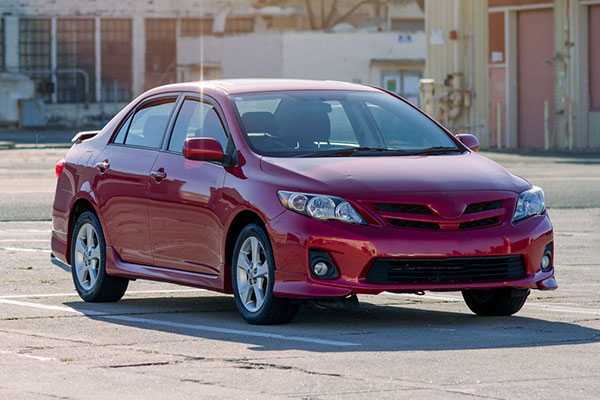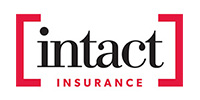Welcome to UK Insurance Brokers
Welcome to UK Insurance Brokers, proud member of PROLINK Broker network serving customers across Canada. As an independent full service brokerage, we have a wide variety of choices and options. Our team’s objective is to find the best value for your insurance dollars. They are committed to put their knowledge and experience to work for you. Services are offered in English, Hindi, Urdu, Punjabi and Pushto.

Insurance Services
Auto Insurance
Cars, Trucks, Vans, Motorcycles
More Details
The moment you own a car, you have the risk of it being stolen, lost in fire or vandalized. Once you start driving it, there is the risk of damaging your own car, others property, injuring or causing death of another individual or yourself.
In the province of Ontario, the government requires you as a member of the society to take on certain responsibilities. It has made it mandatory to carry a certain amount of insurance. The Government requires you to carry liability coverage to make sure that you have the money to pay for losses (eg. property damage, injury, death) you might cause to others while driving. The Government also requires you to carry basic accident benefit coverage to cover your own medical expenses and loss of income resulting from injuries caused by a car accident.
Physical damage of your car which is covered under your collision and comprehensive coverage is optional. If you so choose, you could transfer these risks to the insurance company also. On the other hand, if you lease or take a loan against your vehicle, your leasing or financing company will require you to carry physical damage coverage which is referred to as collision and comprehensive. The leasing and financing companies want to make sure that their money is guaranteed by the insurance company in case of physical damage.
Home Insurance
Home, Property, Condo, Tenants
More Details
Home Insurance
When you own a home, there is always a risk that it can be damaged or destroyed by fire, windstorm, hail, falling objects like trees, aircrafts, water damage due to rupture of water pipes, sewer backup, vandalism, theft/break in etc. You can buy an insurance product to transfer your risks to the insurance company. Now, if you have a mortgage on the house you don’t have a choice. Your lender wants to make sure that you have insurance to get the house replaced or repaired. Your risk in the house is up to the amount of equity in the house. The rest of the risk is the lender’s. They want to make sure that you protect their risk/interest.
What are the Coverages?
Dwelling/Building:
This is the coverage amount you need to rebuild/replace your home in a total loss. This amount includes debris removal. The insurance company evaluates this coverage amount by taking the information from you regarding the house. For the evaluation they need to know the square footage of your home, the number of washrooms, type of built, age of the house, features like number of garages, number of washrooms, whether the basement is finished or unfinished, types of flooring etc. This evaluated amount called the Dwelling or building coverages is the replacement value of your house. This dwelling value does not include the land value and is not the market or resale value of the house. Once you have accepted the replacement value as evaluated by the insurance company, the company will guarantee the replacement of the house. What that means is that the insurance company, at the time of a covered loss, will replace the house even if it costs them more than the evaluated dwelling coverage. For example if the evaluation of your house is at $300,000 and it costs the insurance company $350,000 to replace the house at the time of the covered loss, they will not ask you for an extra $50,000 to replace the house. Rest of the coverages are a percentage of the main dwelling coverage.
Detached/Private Structures:
This coverage applies to all structures other than the main building. For example fence, tool shed, gazebo etc.
Contents:
This coverage applies to all your furniture and household stuff. For example sofas, TVs, clothing, dining set etc. There are special limits for jewelry, furs, silverware, cash as well as some other items. Please refer to your policy for the special limits as these vary from company to company and policy form to policy form.
Additional Living Expenses:
This provides coverage for any additional expense you might incur after a covered loss. For example, living in a hotel or renting another house while your house is being repaired or rebuilt after a covered loss.
Liability:
This coverage protects you if others sue you for damage or losses (property damage, injury, death) they suffer on your property for which you are legally responsible. Your insurance company will pay for your legal defense costs and pay others up to your liability coverage limit if you are found legally responsible. For example, the mail man comes on your property and you have not cleared the snow and he/she slips and falls and is injured.
Endorsements:
There are other endorsements like sewer back up, single limit of insurance that can be added to your policy.
Condominium Insurance
What if there is a fire in your condo. Who will replace your contents?
What if you are sued for property damage, injury or death to others? The defense costs alone could run in the thousands. Who will pay for the amount you have to pay others if you are found legally responsible.
In case of fire, your corporation’s insurance policy will only cover the building up to its original condition. If there are a lot of addition and alteration in your unit, you will have to pay for that yourself.
What about your share of the assessment?
For example there are serious injuries to a few people when an elevator malfunctions. The corporation is sued and is found liable to pay $10 million to the affected families.
Let’s say that the corporation policy has a liability limit of $5 million. Now the corporation’s insurance company will pay $5 million (the limit) and the balance of the $5 million is equally divided among the condo owners. You have to pay your share of the loss to the affected families. In the above example, if there were 100 units, your share would be $50,000.
What does condo Insurance cover?
Contents:
This covers your furniture and household stuff. There are special limits for jewelry, furs, cash etc.
Additional Living expense:
This provides coverage for any additional expense like living in a hotel or renting another apartment while your condo is being repaired or rebuilt after a covered loss.
Liability
This coverage protects you if others sue you for damage or losses (property damage, injury, death) they suffer on your property for which you are legally responsible. Your insurance company will pay for your legal defense costs and pay others up to your liability coverage limit if you are found legally responsible. For example, you have a fire and someone in the building gets injured or is killed.
The other person or his/her family could sue you for property damage, injury or death. Also your corporation’s insurance company could sue you to recover the damages to the building if you are legally responsible.
Loss Assessment:
Covers your share of the loss assessment when the condo policy limit falls short of the total amount to be paid.
Additions and Alterations:
Many of the condos and condo townhouses have been altered from the original plans. For example the basement is finished, you have replaced the carpet with hardwood, put in new kitchen, granite counters etc. These are called additions and alterations which are not covered by your condo corporation’s policy. You can cover these in your condo policy
Tenant Insurance
Good question! The owner insures the building and you are paying your rent. What are the risks you want to cover? Although you are paying rent, you are still responsible for your contents (furniture and household items) in the event of a loss in fire or theft etc.
In a building you are liable for the damage to the building, injury, death or property damage of others if you are found legally responsible for causing the fire. In the event of a law suit, even the defense costs alone could run into the thousands.
Where will you live while your apartment is being repaired after a fire?
- Can you afford not to cover these risks?
- What does Tenant Insurance cover?
Contents:
Liability:
This coverage protects if others sue you for damage or losses (property damage, injury, death) they suffer on your property for which you are legally responsible. Your insurance company will pay for your legal defense costs and pay others up to your liability coverage limit if you are found legally responsible.
For example, you have a fire and someone in the building gets injured, killed or you damage the building and other property. The other person or his/her family could sue you for property damage, injury or death.
Your landlord’s insurance company could sue you to recover the damage to the building.
Travel Insurance
Travelling Canadians, Visitors & Students
More Details
Who Needs Travel Insurance?
Any person who is travelling outside of Canada or people visiting Canada, need Travel Insurance to cover Emergency Medical expenses in case of an Accident or Sickness during your travel.
You budget hunderds of dollars a day for expenses on your vacation, why not add just a few dollars a day to cover the emergency Medical expenses. Most people are surprised to know how inexpensive and affordable it is to get Travel insurance coverage.
Why do I need Travel Insurance if I travel outside of Canada?
OHIP has certain limits and restrictions when it comes to medical coverage while you are away from your province of residence. You need Travel Insurance to make sure that you have proper medical coverage while on vacation/travel. You don’t want your vacation/travel to turn into a major medical expense due to an accident or medical emergency.
Life, Critical Illness, Disability
Term and Permanent
More Details
What is life insurance?
It is a product which is available to cover a lump sum amount which is payable to your designated beneficiary if you die. It is called the death benefit. This Tax Free amount does not serve you, but it serves your dependents whom you leave behind. There is no amount that can replace you. We can’t even imagine a spouse or child left behind who would prefer any amount over you, it is just the hard reality of life.
Why do I need Life Insurance?
Getting Life Insurance coverage is the most selfless thing you can do in life. You get life insurance to protect the people you love and most importantly the people who are financially dependent on you.
This could be your spouse, children or your elderly parents or anyone else who is important to you. You are the only person who can decide how important these people are and how well you want to take care of them in the event of your death. Is there a risk of death? Absolutely. One hundred percent. This is one thing that you can say with absolute certainty. The only uncertainty is the time. Life insurance is the only coverage, which keeps getting expensive as you get older and if your health declines. The best time to get your life insurance is in your younger, healthier years. You have to find a reason to get life insurance.
What are my reasons for getting Life Insurance Coverage?
Your reason could be different and unique, but it could also be one of the common reasons why other people get life insurance coverage. Find the reason which touches your soul.
-
- You get married- Your spouse becomes a reason.
- You have a baby- Your baby becomes a reason.
- You buy a house- Your mortgage protection becomes a reason.
- You are elderly- Your final expenses (funeral, taxes, out standing loans/debts) become a reason. You do not want to be a financial burden on anyone.
- You start a business- Your business continuity becomes a reason.
- You have accumulated a lot of wealth- Your estate conservation becomes your reason. At time of death, capital gains tax could significantly deplete your estate.
- You prepare a financial road map- Your final destination or goal becomes a reason.
- You support a charity- Your final donation could become a reason.
- You have elderly parents-Your reason becomes to ensure that you have funds to fulfill their last wishes.
- You are planning your retirement-Your extra cash at retirement becomes a reason.
- You are a grandparent-Your grandchildren become a reason.
How much Life Insurance do I need?
There are different ways of calculating the amount of insurance and coverage you need. As life progresses, your needs change so it is impossible to be 100% accurate. That is why we recommend that you review your existing life insurance coverage regularly.
The simplest way to calculate is to figure out the amount of money required to replace the income lost after your death, plus the final expenses (your funeral costs, outstanding taxes/loans/debts etc). For example you make $50,000 per year and you expect final expenses to be $50,000. Let’s say you could get 10% interest if you have a safe investment in a bank GIC. Now if you invest $500,000 in a bank GIC, at 10% interest rate, you should earn $50,000 a year. So the amount of insurance you need is the amount needed for investment plus final expenses. ($500,000 plus $50,000= $550,000). This would cover your needs as of today. You could increase this amount to take care of inflation or increase in expenses.
What are the types of Life Insurance?
Term Life Insurance:
This type of insurance covers your risks for specified number of years. It could be a 5, 10 or 20 year term. You can renew these terms at a higher premium up to age 70 or 75. The coverage cannot be extended beyond that age. Companies will allow you to convert these policies to a permanent plan up to a certain age. This is the most inexpensive way to cover your risk for the short term.
Permanent Life Insurance:
There are different types of permanent plans. These plans go to age hundred. It means that if you continue to pay your premiums, your beneficiary will get the amount insured for sure. Most of these plans will also have cash value which you can get when you cancel the policy.
What type of Insurance should I get? Term or Permanent?
This is a very common question asked by people. You have to really think that through before you make a decision. Getting life insurance is the most selfless action you take in life. So keep it selfless when you make this decision and focus on the reasons for which you are getting this coverage. If you do that, you will make the right decision.
Once we have our eyes on the reasons, the next most important thing to consider is affordability. What ever you do, the cost for the coverage has to be within your budget. If your reason is strong enough, you’ll find a way to budget the cost. The way I explain the difference between getting term or permanent insurance is like renting a house or buying one. When you rent, all you have to worry about is the rent. No other expenses. For short term, it is much cheaper than buying. After 10, 20, or 30 years of renting, you walk away with nothing. This is what you could afford in your budget. You still rented a house to live in and didn’t live on the streets. This is term insurance.
On the other hand, when you buy a house your expenses are much higher in the short term. For example when you purchase a home you need a down payment, you are making payment for the mortgage, property taxes, pay for utilities, maintenance and up keep of the house and house insurance. Although you pay much more when you own a house, but you know that after 20-25 years, the house is yours. You’ll still continue paying the other expenses, but your major expense of the mortgage payment will be finished. You own your house! This is permanent insurance. Similarly, you own your life insurance policy after 20-25 years if it is set up properly.
So what is best for you? The plan that gives you the coverage at a cost that fits your budget is the plan you should get. It could be term insurance only or permanent insurance only. It could be a combination of the two. For the long term needs you get permanent coverage and term insurance for the short term needs. If one of your reasons is to protect you mortgage, then you might want to get a 20-25 year term insurance to cover that.
Once you have a reason and a need, we can help you find the right insurance product to cover that need.
What is critical illness insurance?
Do I need Critical Illness Insurance?
Anyone can get critically ill. In fact,the chance of you becoming critically ill is higher than you dying before the age of 75. The majority of Canadians will fully recover from a critical illness, thanks to the Medical advancements.
The lump sum payment you receive from your critical illness coverage can help you pay your bills, medical expenses or you can just relax and take things easy while you recover.
What illnesses are covered?
Covered illness could differ from company to company. Almost all companies cover the following illnesses. Some could have up to 20 illnesses.
• Heart Attack
• Cancer
• Alzheimer’s
• Stroke
• Organ transplants
• Kidney Failure
• Blindness
• Paralysis
What are the types of Critical Illness insurance?
Just like life insurance, Critical Illness Insurance has term and permanent insurance plans. The plans come with different features
Eg. If you die for a reason other than covered in your policy, the premium you paid may be refunded to your beneficiary,
Some plans will refund a portion or the entire premium to you if you stay healthy and never get critically ill.
Commercial Insurance
Full coverage for your business
More Details
What does a commercial policy cover?
Buildings:
Includes your building . If you own the building you have to insure it like you insure the building in your home policy.
Contents
Contents include everything in the building for which you are responsible. These will include the leasehold improvements you made if you are renting. This also includes racks, furniture, fixtures, stock, equipment, customers stock, employee’s stuff, etc.
Liability
Business Interruptions
This is a very important coverage. Most businesses fail to recover after a serious loss. It is not because you did not have enough coverage for the building and content, but you failed to insure your cash flow. Business interruption insurance will give you the cash flow you need to continue to pay for the fixed expenses like mortgage, taxes and utilities. It will also pay for your profits and the salaries of your key employees. You can also choose to ensure the salaries of your full time ordinary employees.
There are two basic types of plan.
- Extra Expense: This covers any extra expense you might incur due to a covered loss. Just like your additional living expenses in your home owner policy, this will provide coverage if you have to rent another location till yours is repaired or rebuilt.
- Loss of income: This covers the loss of income due to the covered loss. It maintains your cash flow during your covered loss. If you own an apartment building, this will cover your loss of rental income. Depending on the type of business, you could get extra expense and loss of income coverage.
Crime and Robbery
Bonds
Contractors
Refer a Friend or Family Member
Do you have a friend or a family member that you believe we could help? Fill out the form below and we will contact them.















